They’ve got a wall in China
It’s a thousand miles long
To keep out the foreigners they made it strong
I’ve got a wall around me
You can’t even see
It took a little time
To get to me
–Paul Simon
WHEN I STARTED THIS BLOG I made an unstated commitment to post when moved to do so, instead of on a regularly scheduled basis. On the other hand, delving into the personal was one of the last things I intended. Yet here I am, baring my soul about a recent trip to China while it’s still alive in my aging memory.
The opportunity to tour China arose because of the invitation of Susie, my high-school sweetheart and a good friend for most of the four and a half decades since we met in fifth grade. Susie’s base is Montreal but, as an executive with a global corporation, she and her family have lived abroad, in places as distant as South Africa and Poland. After her husband Daniel fell to cancer several years ago, she did a stint in my adopted home town of New York; her two children, Emily and Max, now adults and on their own, she’s currently stationed in Shanghai. At her urging (and with a timely break in the parade of earnings announcements vital to my work as a securities analyst), I planned a 10-day visit that also took me to the historic cities of Suzhou, Xi’an and Beijing.
Susie was a most gracious host, showing me the delights of China’s booming commercial metropolis: the dignified architecture of the Bund; Pudong’s pyrotechnical skyline across the Huangpu River; the French Concession, with its time-worn colonial residences where clothes hang outside to dry; the parks where groups of locals engage in singing and ballroom dancing, even matchmaking, all in public view. Shanghai is a great dining city too, and we enjoyed both Eastern and Western meals. There and on the journey ahead I would partake of juicy dumplings, lamb soup and Beijing duck, marveling from a safe distance at such novelties as roasted scorpion on a stick.
On my own I covered every exhibit in the first-class Shanghai Museum, housing superb collections of ancient Chinese bronze and ceramic works, hanging painted scrolls and calligraphy. One day I rode the bullet train to and back from nearby Suzhou, once home to the country’s greatest clockmakers and now reputedly the world’s largest manufacturing site of digital cameras and laptop computers. There, surrounded by industrial sprawl, remain some of China’s finest classical gardens, with poetic names like “Garden of the Master of the Nets” and “Humble Administrator’s Garden.”
As Susie well knew, Shanghai is an ideal introduction to China for the novice, a place to get accustomed to its ways and recover from jet lag. To facilitate my journey onward she provided maps and papers with the addresses of hotels and restaurants written in English and Mandarin for the taxis, booked drivers to take me to outlying sites, even loaned me a China Mobile phone with a lifeline to her bilingual assistant Connie. I couldn’t have been more fortunate. Only five days remained, and I had a lot of ground to cover to see as many of the glories of this ancient land as possible.
THE APRIL WEATHER was excellent for traveling: warm temperatures during the day and cool at night, with practically no rain during my entire stay. The semi-opaque air was another story entirely. According to different accounts I heard, it was dust blowing in from the Gobi Desert and fog mixed together, good old-fashioned pollution, or some other combination thereof. This was tolerable for breathing, worse for photography.
In a China that is both rapidly modernizing and still under firm government control, I was almost unaware of the scandalous details regarding Bo Xilai, the deposed Communist Party chief of Chongqing. Our Western media have been captivated for weeks by this tale of corruption, wiretapping and notably Bo’s wife, Gu Kailai, portrayed by some as an Asian Lucrezia Borgia for her alleged poisoning of a British businessman. Still, political censorship in China is nowhere near as absolute as it used to be, and I had no problem staying current on all of the major events in business and sports.
The everyday folk I encountered were never hostile, occasionally curious and friendly, but mostly indifferent to my presence. I rarely felt unsafe, nor did I even lose anything of value (other than the tube of toothpaste that Beijing airport security confiscated from me before boarding my flight back to the States). At the major destinations, mobs of Chinese tourists — who tend to spit loudly and often don’t respect another’s physical space — could be oppressive. Yet I understood that rising affluence has given many a first chance to discover their own country, which the American majority takes for granted. They’re in a hurry.
A couple of flight delays that I endured were a minor inconvenience, never deterring me from my appointed rounds. To take in all the sights, sounds and smells without interference, I avoided tour guides, pedicabs and even taxis whenever possible. I walked until my feet, legs and back ached, along Suzhou’s old canals, in the Muslim souk of Xi’an at one end of the Silk Road, up and down the steep course of the Great Wall at Mutianyu, around the lakes of the Summer Palace and through the picturesque hutongs (alleys) of Beijing.
So I hit all of the highlights on my route, and now could cross the China trip off my bucket list. But I had very little meaningful human contact in the final days, knowing only a handful of Mandarin words in a country where few outside the major hotels speak any English. Armed with a Nikon and an iPad, I brought home nearly 300 pictures of the trip and don’t have a single one with me in the frame. And here too, many people went about with earphones plugged into their music players, almost oblivious to anyone whose path they crossed. I might as well have been one of them.
ON MY LAST DAY of sightseeing, I was fumbling with a pair of maps outside the north gate of Beijing’s Forbidden City, the enormous palace compound for two imperial dynasties, when a woman’s voice asked me from behind where I was from. Turning around, I told her I was American. She was of a younger but indeterminate age, with a sweet, sad face that seemed to me more Mongolian than Han Chinese. Petite and conservatively dressed, she said she was visiting from Harbin, a city in the extreme northeast of China. There, she told me, I would be one of the few Westerners anybody ever sees, other than the odd Russian. The woman said she had spent three hours in the Forbidden City; I had spent four. But I will never know anything more about her, except for what my imagination conjures up.
Suddenly, she asked me if I wanted to go for a coffee. By then I had become inured to girls in touristy areas calling out, “Hello, Mister,” trying to steer me to expensive, supposedly authentic tea ceremonies and the like. Outside Xi’an — where more than two millennia ago the tyrant Qin Shi Huang ordered the production of a whole terra-cotta army and other figures to guard his mausoleum – a pretty tour guide set me straight when I politely declined her services: “You think you so smart.” (In hindsight, it would have done me good to explore the site in her company.)
When a 55-year-old man is approached like that by an unfamiliar woman, it’s natural for his guard to go up. This was out of the question. She was too aggressive, her English ability suspicious. I had a lovely wife waiting for me at home. There was no time. “Look,” I said, “I’m leaving early tomorrow and I only have a few hours left to see Beijing. I need to finish my walking tour. But it was very nice meeting you.” After shaking her hand I rambled off toward Prince Gong’s residence, which turned out to be a beautifully restored, scaled-down Forbidden City, overwhelmed by tour groups.
By the next morning the woman was beginning to haunt me.
What was she hustling me for: a sugar-daddy night on the town, a Green Card? Or maybe she was just a more mature version of the schoolgirls on an outing to the Suzhou Museum who asked me, an exotic American, to pose for pictures with them, wanting just to practice English with a native speaker. She was a human-rights activist trying to recruit me, perhaps, or a government agent posing as one. Did I really want to find out? I, who never missed taking a pill the entire trip, tracks his personal net worth in real time, works out at the gym every two days and logs in his activities, pictured myself as a Prufrock, measuring “out my life with coffee spoons.” I switched from T.S. Eliot to Henrik Ibsen (“When we dead awaken.… We see that we have never lived”) before my cliché alarm sounded.
Still, didn’t my drive and self-discipline ultimately afford me the wherewithal and savvy to arrange (with Susie’s invaluable help) such an adventure on short notice? Haven’t I visited dozens of countries and connected with people all over the world? Shortly, like Odysseus, I would be returning home to my Ithaca, my Penelope, where all would be right – and that alarm went off again.
On the final flight leg back to New York from San Francisco, I went into the aircraft lavatory and spontaneously cried. It bewildered me, because I had been so pleased with everything, but for a moment the tears washed away a lifetime of jadedness. Soon enough she will fade from my recollection; I’m already having trouble visualizing her face. But the China trip could’ve been perfect. What would I have risked to spend a half hour with a diminutive stranger who braved rejection to meet me? Why didn’t I join the woman from Harbin for a cup of coffee?
To see more photos of China visit http://garyvinebergsphotos.shutterfly.com.

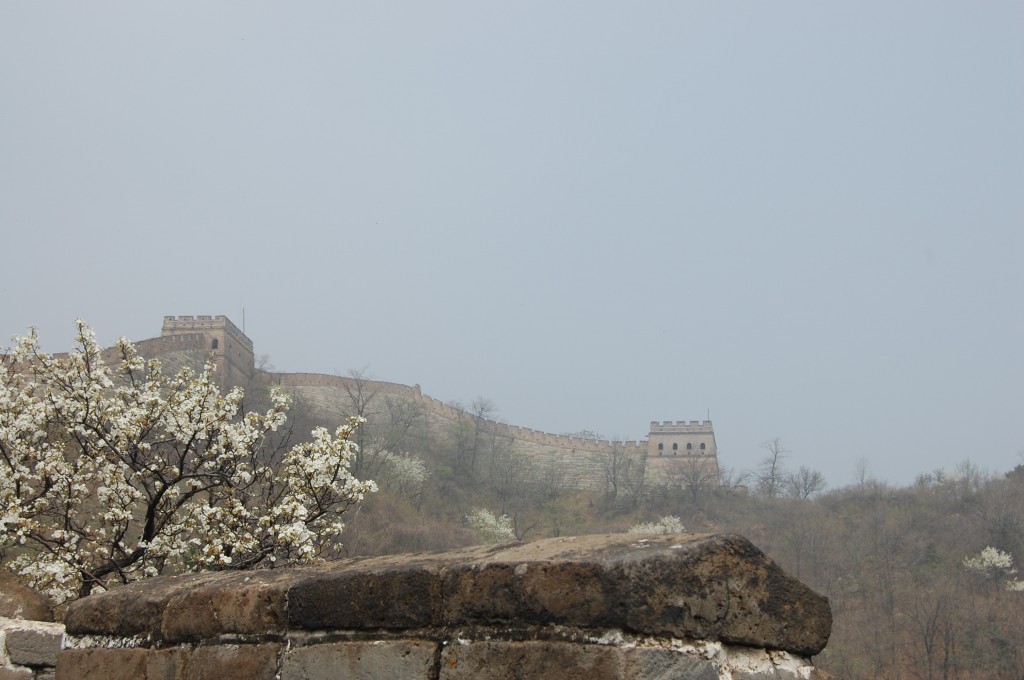
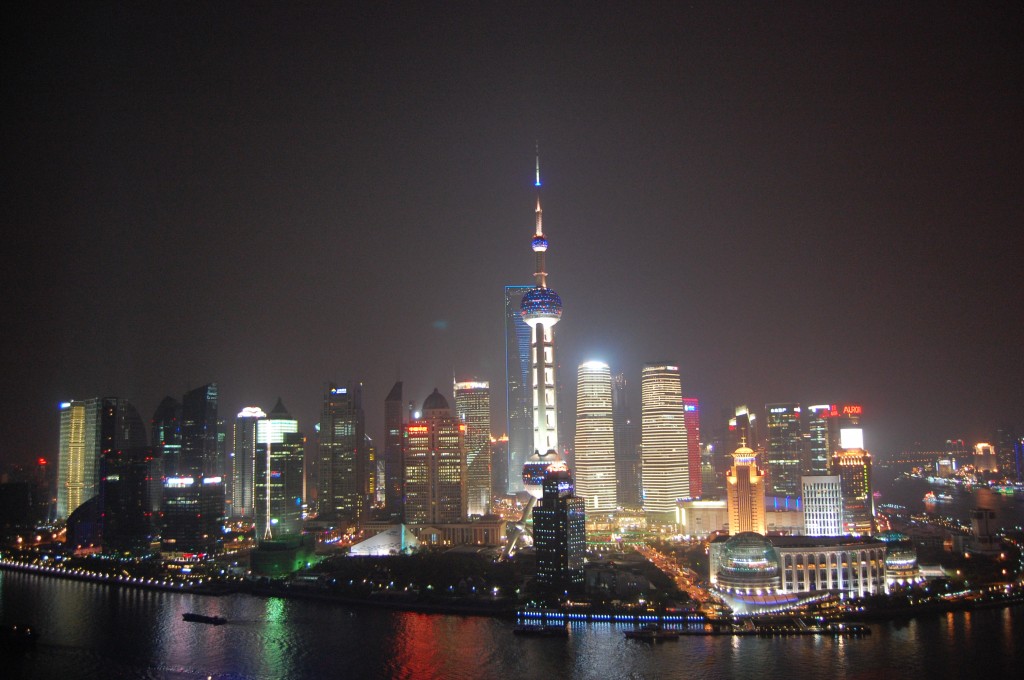
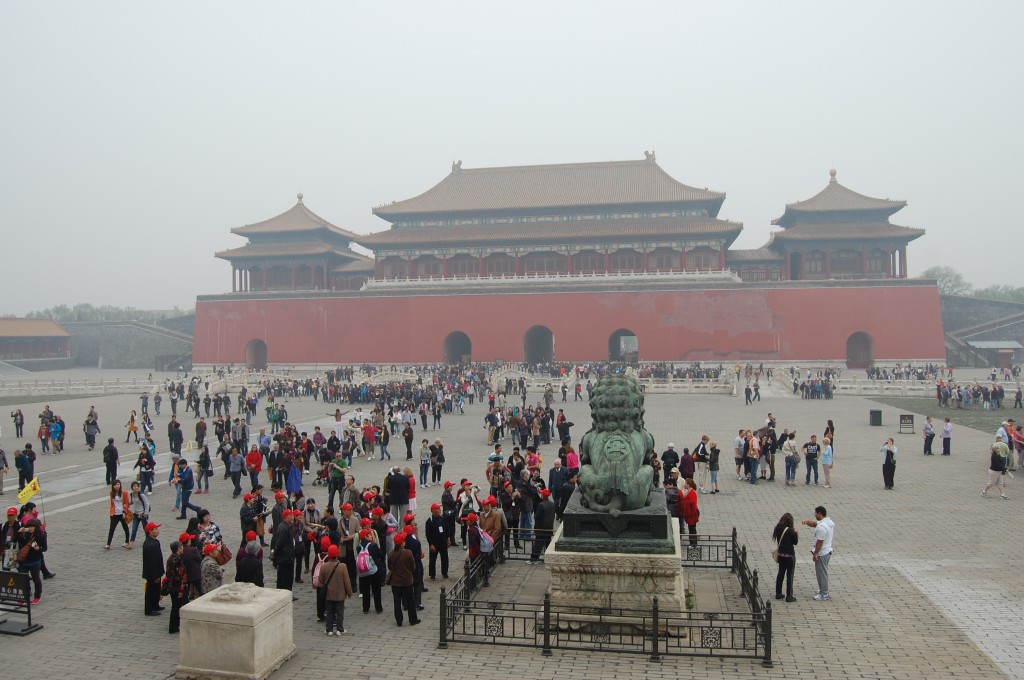
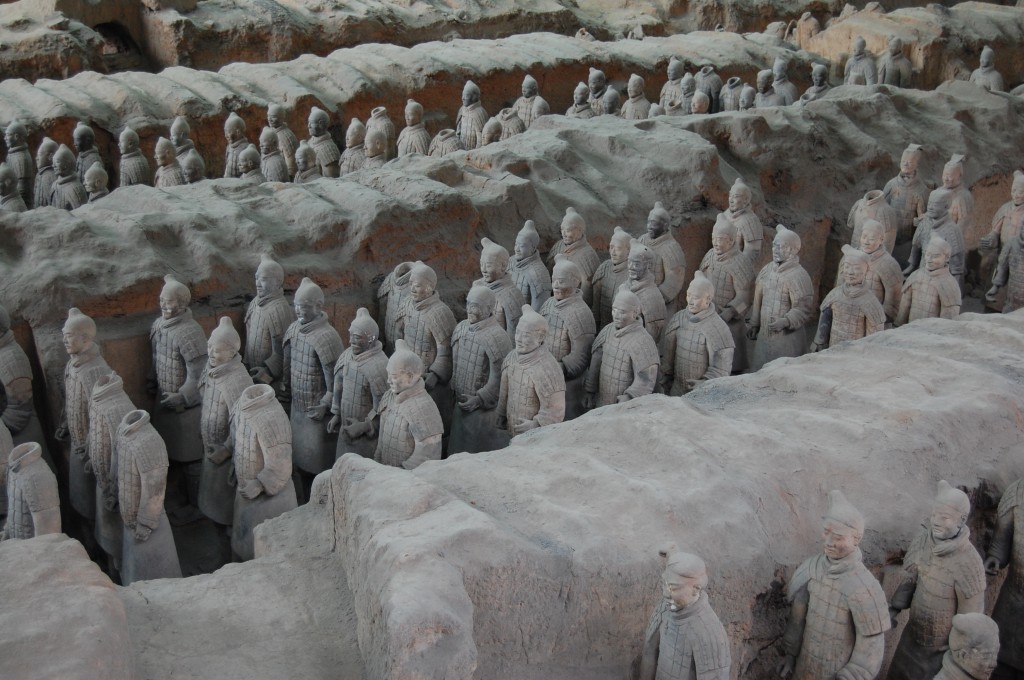
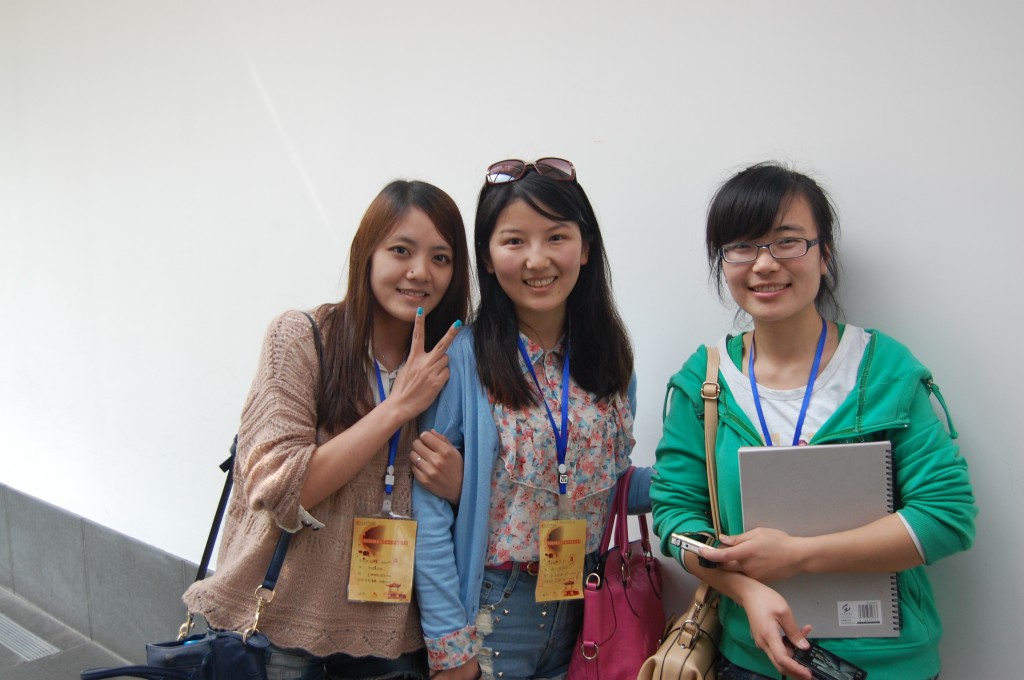
I spent 10 days traveling through the centre of China two years ago, Gary. I was with an old friend, Russell Napier, and his formidable CLSA (Credit Lyonnais Securities Asia) translator Chen Lei. Chen had started her career in military intelligence before switching to investments. (The hoary old chestnut about military intelligence being an oxymoron doesn’t apply to the Chinese, it would appear.) It was a mind-blowing experience to see millennia of history swept into a few tiny enclaves of old buildings, plus a variety of “third-tier” cities with populations of five million that looked like they had just been flattened and rebuilt, and were waiting for most of the people to move back in or be able to afford to buy cars to drive on the nice new six-lane highways.
It took Russell around a week to find a bit of a city he could point to that looked like the whole country had even a decade before. English translations were a constant amusement, too. We were tempted to have a meal in the alluringly named “House of Gruel,” but not, ultimately, tempted enough. Dickens would have been proud. I didn’t have coffee with a haunting stranger either, but I did spend a five-hour train journey opposite a Mongolian herdsman who ate solidly throughout. I recognised a duck at one point but the whole rest of his banquet — animal, vegetable or mineral — was a mystery to me. The pangs I felt were of curiosity rather than hunger.
Mike, something you probably noticed in China, especially with its artificially undervalued currency, is that there seem to be two coexisting economies: one local and the other globalized. In Shanghai and Beijing, I saw Bentleys parked in front of the ritzy hotels and restaurants, where prices are comparable to those in the major Western cities. But only tourists, expatriates and the Chinese elite can afford them. One day I treated my driver to lunch at a hole-in-the-wall place on the outskirts of Beijing. For both of us it cost 20 yuan — a little more than $3 — for a salad, two big bowls of noodle soup, a large beer, and roasted peanuts. Even in down-and-out Portugal last year, I was able to buy a large bag of roadstand peaches for about a euro, while the top lodging and dining places were as pricey as ever. Whether it’s in the developed or emerging-market countries, if you’re not somehow connected to the global economy your standard of living is unlikely to improve.
Interesting, the woman from Harbin. Allegorical beckonings of the East, at once mysterious, dangerous, unknowable? A tantalizing loose end? Not lost! The door remains open in your mind’s eye. Seems a fitting conclusion to a wonderful adventure!
My question is whether this is a passing insight or a new beginning. Getting taken advantage of was my biggest fear for a long time, and protecting against that cost me more than opening myself up and taking more chances.
Dave, that is a very good question. I look back on it as a wake-up call to avoid getting locked into routine behavior, to try to keep your humanity, to fight the self-isolation and fears that creep up on you with age. But what seems inescapable to me is that the choices you make with your diminishing time get increasingly difficult.
More important is the road taken, rather than the road not taken. For the roads not taken are infinite, while the road taken is at hand.
Overwhelmed at choices and under time restrictions of advancing mortality, I’ve found much to be said about local pleasures.
Psychology 101 had it right; my world view has moved to focusing on limits.
Hats off to your sense of adventure and ability to carry it off.
You took the trip on your own — that’s plenty of adventure right there. Don’t regret the woman from Harbin, learn from it.
I once said yes to a stranger in Morocco and ended up stuck on a hash farm in the Rif mountains for days. And I don’t even smoke pot. Misadventures make the best stories.